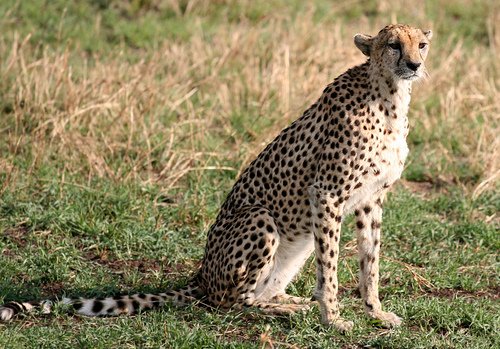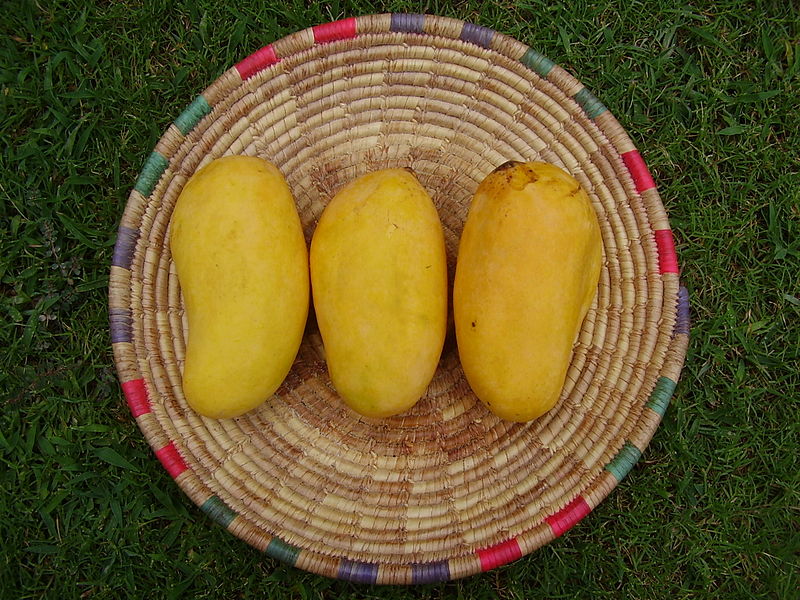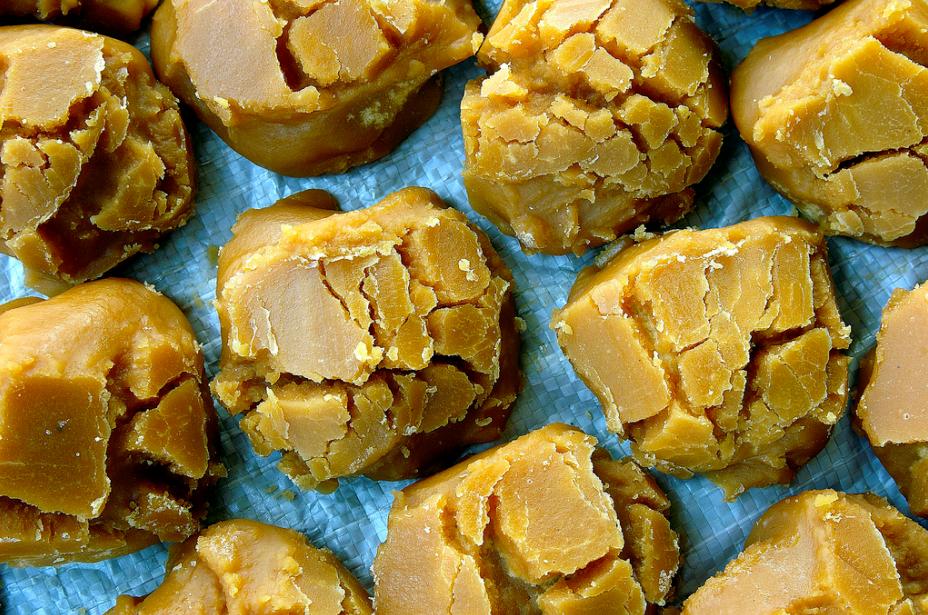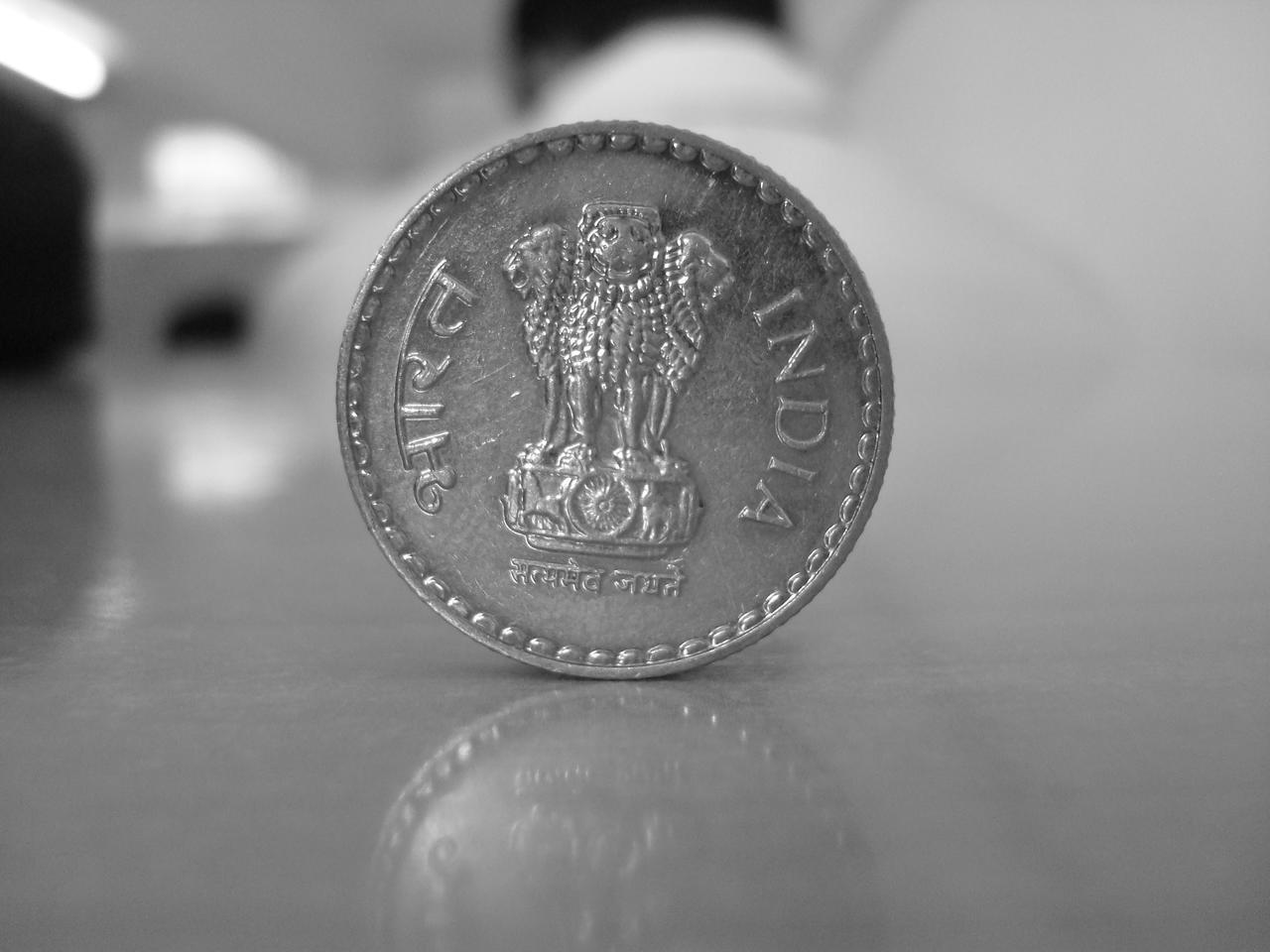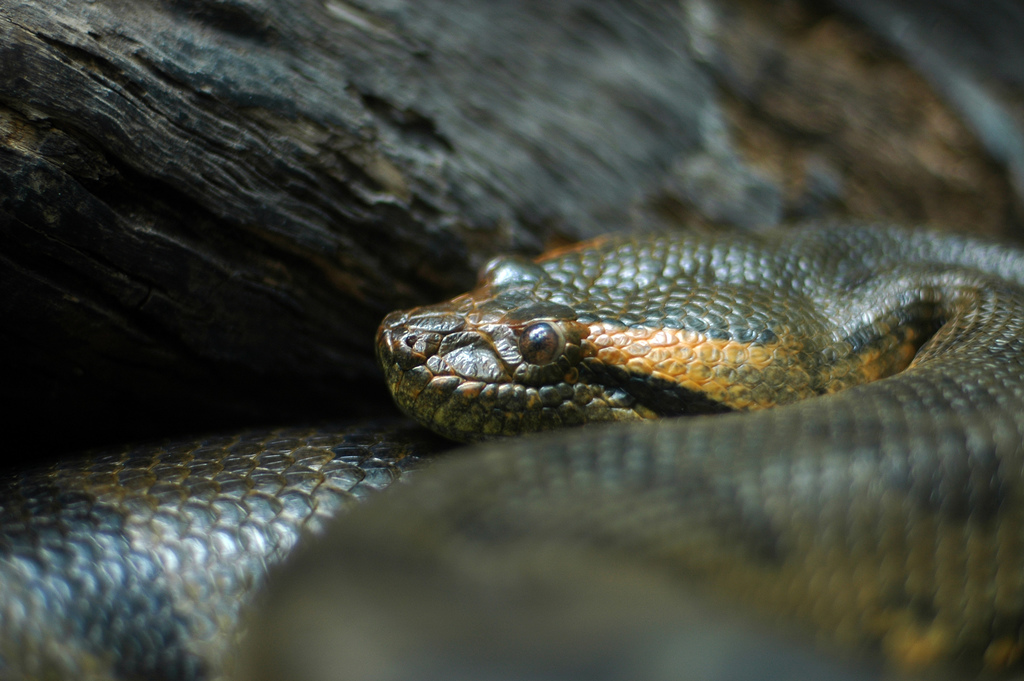The English language has absorbed words from cultures the world over. The following is a list of some English words whose origins lie in the Hindi, Urdu or Sanskrit languages spoken in India, Pakistan and other countries. These words have entered English through a variety of routes, but the presence of many dates back to the days of the Raj, when India was occupied by the British.
1. Avatar
In Hinduism, an avatar is the manifestation in human or animal form of a god, especially Vishnu. The word first appeared in English in the 18th century and derives ultimately from the Sanskrit word avatara meaning descent.
More recently the word has gained additional senses, for example to refer to a computer user’s visual representation within a game, on a forum etc.
2. Bangle
A rigid ornamental bracelet worn around the wrist (or ankle). Its appearance in English dates back to the 18th century. It derives from the Hindi word bangri meaning a glass ring or bracelet.
3. Bungalow
A one-storied house. Derives from the Hindi word bangla meaning, literally, in the style of or belonging to Bengal. The word bungalow in English dates back to the 17th century when it was used to refer to a type of cottage built in Bengal for early European settlers.
4. Cheetah
A long-legged big cat from Africa, the fastest land animal on Earth. Its black spots provide the clue to the origins of its name, which derives from the Hindi word cita, meaning speckled or variegated.
5. Chutney
A thick, pickled condiment made from fruit, vinegar, spices and sugar. This word entered the English language in the 19th century and derives from the Hindi word chatni, whose meaning is more or less the same as the English word.
6. Cot
This word has several meanings, but in the sense of a portable bed or a high-sided child’s bed, it derives from the Hindi word khat, meaning a bedstead or hammock. It arrived in the English language during the 17th century.
7. Guru
Originally a Hindu or Sikh spiritual guide, guru entered English in the 17th century, where it now also means any important and respected intellectual guide or mentor. The original word in the Hindi and Sanskrit, also guru, means venerable.
8. Juggernaut
In English, a juggernaut is an unstoppable force or movement that sweeps aside or destroys anything in its path. In the UK it is also used to refer to very large lorries (trucks). The word arrived in English in the 19th century and derives from the word Jagannath, a form of the Hindu deity Vishnu.
9. Jungle
An area of dense vegetation or, by extension, any challenging or hostile environment. It derives from the Hindi word jangal meaning a forest and began to be used in English during the 18th century.
10. Loot
Loot is both a noun and a verb. As a verb it means to ransack, to steal from someone or something, often in a violent way. The noun means whatever is stolen by the act of looting or, simply, any money. The word derives from the Hindi verb lut, meaning to plunder or steal.
11. Pyjamas/Pajamas
A set of loose-fitting sleeping clothes, consisting of a jacket and trousers. The pajama spelling is used in North America. The word entered English in the 19th century. It derives from the Hindi word payjamah, meaning leg (pay) and clothing (jamah).
12. Shampoo
A soapy liquid for washing the hair (or other things such as carpets). It arrived in English in the 18th century and derives from the Hindi word champo, meaning to squeeze, knead or massage.
13. Thug
A brutal or violent person, it derives ultimately from the Hindi word thag meaning a thief or a cheat. It entered the English language early in the 19th century.
14. Veranda/Verandah
A sheltered gallery or terrace attached to a house or some other building. The word began to appear in the English language early in the 18th century. In Hindi, the word varanda has a similar meaning. This is not the source of the word, however, as it is thought to derive from the Portuguese word varanda meaning a balcony.
15. Yoga
This was originally a Sanskrit word meaning yoking or union. It refers to a system of Hindu philosophy concerned with achieving reunion with the divine. A part of this discipline involves meditation, breath control and the adoption of certain postures, which is how the word came to have the sense of a system of physical exercise. It entered English in the 19th century.
Note: Hindi, Urdu and Sanskrit words in this article have been written in a simplified, anglicized form, using the representations employed by the Chambers 21st Century Dictionary.
23 Nov 2010
Posted at 12:51h
in Word stuff
27 Comments
Historically, these great British Isles, where I live, have a habit of being invaded. (Although, thankfully, not for some time.)
The upside to this, of course, along with nice straight roads built by the Romans, is that the English language is a rich and colourful blend of Latin words, Anglo Saxon words and French words.
But that’s not all. The Brits, of course, love to “visit” other countries – whether we’re invited or not. And during the era of British rule in India (1612 – 1947) numerous words of Indian origin entered the English language.
These Indian words came from a variety of languages including Hindi, Urdu, Punajabi, Gujarati, Bengali, Marathi, Kashmir, Sindhi, and the sacred, ancient language Sanskrit.
And today, over 700 words in the Oxford English dictionary have Indian origin. Here are just a few of them:
Bandanna: From the Hindi word Bandhana meaning to tie.
Bangle: From the Hindi word Bangri meaning glass bracelet.
Bungalow: From the Hindi word Banla meaning “house in the Bengal style” or single story house.
Chit: From the Hindi word Chitthi meaning a slip of paper (used instead of money).
Cot: From the Hindi word Khat meaning portable bed, couch or hammock.
Cummerbund: From the Urdu word Kamar-band meaning waistband.
Cushy: From: the Hindi word Khush meaning happy, easy, pleasant.
Doolally: From the town of Deolali, the location of an army base and sanatorium where soldiers leaving India in the late 19th century were sent before leaving for home. Those that became mentally deranged after contacting a fever, or Tap in Urdu, were said to have gone Doolally Tap.
Guru: A Hindi word meaning spiritual leader or guide, teacher instructor. From the Sanskrit words Guruh meaning weighty, heavy, grave.
Khaki: An Urdu word meaning dusty or dust coloured.
Pundit: From the Hindi word Pandit meaning a learned man. From the Sanskrit word Panditah meaning learned scholar.
Pukka: From the Hindi words Pakka meaning cooked, solid, substantial.
Pyjamas or Pajamas: From the Urdu word payjamah meaning leg garment.
Shampoo: From the Hindi word Champo, meaning to press and massage.
Thug: From the Hindi word Thag meaning a thief or conman and the Sanskirt word Sthaga meaning robber.
Yoga: A Sanskrit word for the union of mind, body and spirit.
Any favourite Indian words? And Chicken Tikka Massala, Tarka Dal, Sag Aloo and Bhindi Bhaji don’t count!
Illustration by Anirban Ghosh
Once upon a time, a wedding procession, laden with gold, jewels, silverware and good cheer, made its way across two Indian princely states. The women and children rode in palanquins, while the men took their best steeds; the helpers and soldiers walked alongside. They passed through uncharted terrains, travelling in the daytime and halting as darkness descended. That night, as the revellers let down their guard in their camps, shrill cries of pain emanated from the isolated site and pierced the still night air. The next morning, a herder found the bodies while passing by—apart from the modus operandi that gave away the perpetrators, the loot that must have followed the carnage pointed towards a band of thuggees or highwaymen.
Thus began many a lore of the thuggee. The word thug—meaning a criminal or a gangster—has its roots in early 19th century India. Derived from the Hindi thag that could mean anything from a swindler or thief to a highwayman, it is based on the Sanskrit sthagati, or one who covers or conceals.
Like thuggee, words such as palanquin, cashmere, swastika, gunny, musk, mango, mongoose were all born in India and their origins are just as fascinating: While one draws from the Oriya palanki and Sanskrit palyanka, another is the anglicized name of Kashmir that has come to stand for the fabric from the region. In most parts of the world, the slightest mention of swastika would elicit censure (thank you Nazis for appropriating the Hindu symbol of well-being and good luck), while the fragrant musk (remember the Old Spice commercials?) will remind you not of the Sanskrit muska, meaning scrotum, after the shape of the sac on the abdomen of a male musk deer in which musk is produced.
When the English merchants first came to India in the 17th century, in search of raw materials and new markets following the boom of the industrial revolution, they got more than they bargained for: words. And this doesn’t just hold true for the English traders. Europeans—the French, Portuguese and Spanish—who looked towards India, also picked up words that entered English through their languages.
That English is a vibrant language which keeps evolving to stay current—a dynamic and complex network of changing patterns, expanded through interaction, repetition and feedback—is only underpinned by its position as the lingua franca. A simple phrase or term through reiteration can spark off new inferences, morphing into something unrecognizable. There are as many as 1,000 words of Indian origin in the English language, and counting. Some are easily identifiable as Indian, some have been assimilated and adapted, between the 16th and 20th centuries, to the extent that they seem not from this subcontinent at all.
Etymology, the study of the origin of words, as a (dying) linguistic discipline, is fascinating. It reveals that we are connected to each other in more ways than we can imagine. Take, for example, wheel and chakra—two words that mean the same and share the same root, but are entirely different sounding now. They took on various forms when they passed through diverse channels over the years.
If you thought pundit (a learned man) and pariah (a social outcast) had nothing in common, you are in for a surprise—both words so vigorously used in the Queen’s English actually come from India. Examine the words closely and they reveal how deeply entrenched caste was in our culture. While one referred to a scholar who could read the Vedas and held sacred wisdom, the other comes from Tamil and Malayalam, and literally meant ‘hereditary drummer’, outside the Hindu caste system and later regarded as an ‘untouchable’. Quite unwittingly, the British Raj reinforced caste through its vocabulary and its traces can still be found in modern-day English.
Here is a selection that wouldn’t strike most anglophones as Indian.
1. Bandana: a large, colourful handkerchief, usually tied around the head. It is said to have come into usage around the mid-18th century, from the Hindi bandhna, meaning to tie.
2. Bangle: a rigid, ornamental band, normally worn around the wrist, from the Hindi bangli, or glass bracelet. It first made its appearance in late 18th century. Bangle’s Indian connection goes unnoticed because it rhymes with other quintessentially English-/European-origin words, like dangle, mangle, angle.
3. Catamaran: an early-17th century word that means a yacht or a boat with twin hulls in parallel. It is derived from the Tamil kattumaram, or literally tied wood.
4. Curry: a gravy-based dish made with meat and/or vegetables and strong spices. Its origin can be traced back to the late 16th century, from the Tamil kari. Believed to be simply an anglicization of kari, both words mean the same. There is another possible and lesser-known explanation which expounds that it comes from the root kar, meaning black, making curry a derivative that saw considerable mutation in its meaning and usage. Kari, or charcoal, is not a stand-alone word and is accompanied by a qualifier (e.g. mattu kari or blackened/burnt beef). This, in turn, comes from the way food was prepared—charcoal grilled.
5. Dekko: a quick look or glance. Originally used by the British army in India in the late 19th century, this one is a bit easy to fathom. It draws its meaning from the Hindi dekho or look, the imperative of dekhna.
6. Dungarees: a type of working clothes consisting of trousers with a bib held up by straps over the shoulders, made of calico, denim or similar coarse material. Its usage dates back to the late 17th century. The Oxford English Dictionary attributes its derivation to the Hindi dungri, although it is unclear what it means. One source suggests it is the name of a village near Mumbai, while another claims it was a coarse cotton fabric (dumgri) that was worn by the poor.
7. Gunny: a rough-hewn fabric made of jute and typically used as sacking, it comes from the Marathi and Sanskrit goni. Its first recorded use in English dates back to the 18th century.
8. Kedgeree: a dish chiefly made of fish, rice and hard-boiled eggs. This comes from the Hindi khichri, but shares very little with it in terms of preparation or ingredients.
9. Opal: a gemstone. The dictionary-recorded usage dates back to the late 16th century. It is probably based on the Sanskrit upala or precious stone, sourced from India.
10. Shampoo: a liquid preparation for washing hair, a common household item. The origins can be traced back to the mid-18th century, from the Hindi champo, or to massage.
Expert Advisor: Probal Dasgupta, linguist and professor at Indian Statistical Institute, Kolkata.
The English language has assimilated words from different cultures of the world. Some of the English words are of Indian origin, Urdu, or Sanskrit. Let’s see some of the interesting English words which are of Indian origin.
Avatar
The word avatar means a manifestation of a deity or released soul in bodily form on earth. This Sanskrit word was first used in English in the 18th century. “People say that the 7th avatar is yet to occur which will be in the form of a white winged horse.”
Bangle
The bangle is an ornament which is worn around the wrist. Even this word appeared in 18 century. “I love that gold bangle, it’s really pretty.”
Cheetah
A big cat which has long legs and is known as the fastest animal on earth is Cheetah. This animal has black spots all over, that is why it derives from the name “CITA “. “ A cheetah runs as fast as 80 miles per hour “
Bungalow
The word bungalow means a one-storied house. This word is derived from “bangla” which is a Hindi word. “The west of the park is lined with beautiful bungalows embowered in trees.
Interesting Read: 10 Slang words of Delhi that are totally Jhakkas
Cot
Cot means a portable bed or a bed which has high sides and is meant for the kids. “Billy was put in a cot so that she could not step out.”
Chutney
The word entered in the 19th century which is derived from the word “Chutni”. Chutney means a concentrated picked condiment which is made of fruit, spices, and sugar.
“Chicken topped with chutney, is just a delicious meal.“
Jungle
The jungle is an area of land overgrown with dense forest and tangled vegetation. “The jungle book is a splendid and refreshing book to read.”
Pajamas
The word pyjama entered English in the 19th century which is derived from the word “payjamah”,“pay” means leg and “jamah” means clothing. So it means a set of lose fitted, comfortable sleeping clothes. “The pajamas you gifted me last week are really comfortable and cute.”
Shampoo
The shampoo is a liquid soap which is used for washing the hair. It’s derived from the Hindi word “champo” which means to squeeze or massage. “The smooth and shine shampoo from L’Oreal is suitable for my hair.”
Yoga
The word yoga is originated from the word “yoking”. Yoga refers to a Hindu system which is associated with achieving reunion with the divine. Yoga involves meditation, adopting of various postures in the form of exercise. “Yoga is one of the best forms of exercise “
Hope you found this article Interesting. For more on your city, lifestyle, health and travel, subscribe to MetroSaga,
India as a country has contributed significantly to the world in every possible field – Science, Literature, Engineering, and what not- but a little known contribution of India to the world is Language! Yes, several words to the present day English language. Some of these words are so common that most of us use them rather often, and others, you will not believe even originated in India! So here’s our list of Top Ten:
10. Punch
Not the action of punching, but the extremely popular fruit drink ‘Punch’ is assumed to have originated from the Sanskrit word ‘Paanch’ meaning the numeral five. Obviously, Punch has five ingredients in it – Soda, sugar, lemon, water and spices.
9. Cheetah
This photo “TanzanianCheetah” @flickr from wikipedia
made available under an Attribution license
The name ‘Cheetah’ was probably taken from the Sanskrit word – ‘Chitra’ meaning uniquely marked. Every Cheetah is uniquely marked, with a special lustrous coat that lends the animal its breathtaking beauty.
8. Catamaran
The long, narrow and famous kind of boat owes the origin of its name to the Tamil word ‘Kattumaram’ which also means a boat made of bark. For centuries fishermen have sailed on this old-styled ‘Kattumaram’ on the ocean and continue to do so, to this day.
7. Bandana
This triangular or rectangular scarf gained popularity across the globe as a fashion statement in the 90s. Little does the world know that Bandana takes its name from the Hindi word “Bandhna” which means “to tie”. The word could also have originated from the Tamil word ‘bandham’ meaning ‘a bond’.
6. Mango
This photo “Sindhri Mango” @wikipedia from Khalid Mahmood
made available under a Share Alike, Attribution license.
Come summer and the whole world looks forward to the joy of feasting on mangoes, a tropical fruit, especially popular in India. India is also home to the most number of mango varieties in the world. It shouldn’t be surprising that mangoes also got their name from the Tamil word “maangai”, which refers to raw mangoes.
5. Khaki
Surely all Indians know Khakhi is an Indian word, which means the color of dust, but this color has become so popular in the world that international brands use it as a recognized color for clothing and otherwise.
4. Jaggery
This photo “20071130_122802” @flickr from appaji
made available under an Attribution license
This popular substitute for sugar gets its name from the derivation of a Tamil word “Sakkarai” which means sugar. Incidentally, Sugar itself originates from the Hindi word for it, “Shakkar”.
3. Cash
This photo “Five Rupee Coin” @flickr from Dinesh Cyanam
made available under a Share Alike, Attribution license.
Money, money, money. Be it dollars or pounds or the humble Japanese yen, at the end of the day it’s all cash, and cash owes the origin of its name to the Tamil word “kaasu” or coins. The French disagree though, saying that cash is derived from the French word “caisse”.
2. Juggernaut
This photo “Hare Krishna Juggernaut” @flickr from
bongo vongo made available under a Share Alike, Attribution license.
From the Sanskrit word “Jagannath” of the Jagannath temple in Puri, Orissa, legend has it that foreigners who visited Puri saw the immensely heavy chariots being pulled during the Rath Yatra festival and went back with exaggerated stories of people committing suicide under the wheels of the chariot –making it a metaphor for an immense and unstoppable force.
1. Anaconda
This photo “Anaconda” @flickr from
Jeff Kubina made available under a Share Alike, Attribution license.
According to famous Herpetologist, Frank Wall, the biggest snake in the world, the ‘Anaconda’ also had its name originate from India. Anaconda is from Tamil, from the words ‘Aanai Kondran’ meaning “elephant killer”.
References
- http://www.bbc.co.uk/news/magazine-18796493
- http://www.wmich.edu/dialogues/themes/indianwords.htm
- http://en.wikipedia.org/wiki/List_of_English_words_of_Indian_origin
- http://eurasian-sensation.blogspot.in/2010/02/english-words-of-indian-origin.html
- http://www.sandrova.com/20-english-words-you-probably-didnt-know-were-of-indian-origin/
Words derived from Indian languages
Did you know that there are many commonly used English words which actually have Indian origin? Here we list down some of them.
Canva
Avatar
The word is used to descrie God appearng in physical form, a concept that’s popular in Hindu and Buddhist religions.
Canva
Bandana
Bandana originates from the Hindi words ‘bāndhnā’ which means to tie, or ‘bāndhnū’ which simply means tie and dye.
Canva
Calico
The word Calico refers to a white cotton cloth. It is ‘an alternative form of Calicut (modern Kozhikode), name of the seaport on the Malabar coast of India where Europeans first obtained it,’ as per Etymonline.com.
Canva
Shampoo
The word Shampoo is derived from the Hindi word ‘cāṃpo!’ which means to press or massage.
Canva
Jungle
The word Jungle was derived in the ‘late 18th century via Hindi from Sanskrit word jāṅgala which means ‘rough and arid (terrain)’,’ as per Oxford Languages.
Canva
You may also like
Inspirational mental health quotes to he…
Love quotes by famous authors that will …
Veranda
The word Veranda was derived ‘from Hindi varaṇḍā, from Portuguese varanda which means ‘railing, balustrade’,’ as per Oxford Languages.
Canva
Mandarin
Did you know that the word Mandarin was actually derived from the Hindi word Mantri used for counsellor? In the late 16th century, the word originated ‘from Portuguese mandarim, via Malay from Hindi mantrī ‘counsellor’,’ as per Oxford Languages.
Canva
Palanquin
The word Palanquin originated from the Oriya word ‘pālaṅki’, which is based on the Sanskrit word ‘palyanka’ which means a bed or couch.
Canva
Thanks For Reading!
Next: Inspirational mental health quotes to help you feel okay
Read Next







